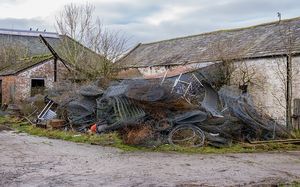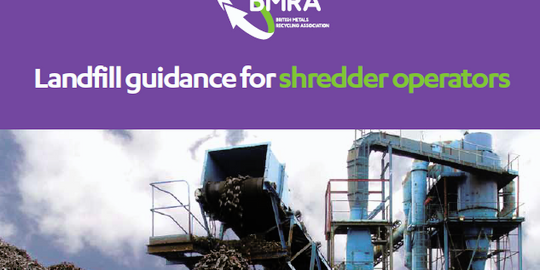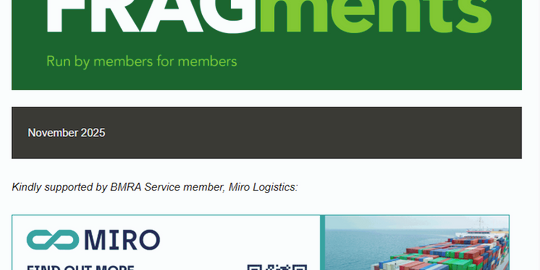A blog by Antonia Grey, Head of Policy and Public Affairs
When I first joined the British Metals Recycling Association (BMRA) and learnt about exemptions, curiosity got the better of me and I

searched the Environment Agency’s (EA) register to see what was going on around the remote village where I live. Imagine my surprise then when I found out someone had a T9 exemption in my postcode. (I should explain the village is so small that it only has one postcode).
When I investigated further, I found out that it was the farm which sits slap bang in the middle of the village. This was confusing because I knew that Geoff was not running a scrap metal business. This is when I learnt that there are more T9s associated with farms than metal recyclers. It also became evident that T9s could also be used by as illegal operators a veil of respectability and the opportunity to run their businesses with no regard for environmental regulations safe in the knowledge they would not be checked by the EA.
A waste exemption is a waste operation that is exempt from needing an environmental permit. And it usually is free. A T9 allows the holder to treat scrap metal for handling or recovery but only using handheld equipment.
Since joining the BMRA, a key part of my role has been to lobby the Government to crack down on illegal scrap metal operators, including those hiding behind the seeming legitimacy of a T9 exemption. We therefore welcomed, and responded to, its 2018 consultation on the future of exemptions… we only had to wait five years for DEFRA to respond.
Earlier this month, DEFRA finally announced that seven exemptions will be tightened and three will be removed: T9, U16 (use of depolluted end-of-life vehicles for parts); and, T8 (mechanical treatment of end-of-life tyres). This will see metal recyclers currently operating under an exemption having to obtain an environmental permit.
With the removal of the T9, changes to the other exemptions mostly became moot. However, what will impact metal recyclers is the move to prohibit permitted operators from also holding an exemption such as an S2 (storage in a secure place), including on an adjacent site if there is a direct link to the business. Currently, many operators use an S2 to store additional treated scrap metal.
All these changes are set to be implemented in 2024 with a three-month transitional period. I have two main concerns about this. Firstly, a standard rules permit would be over-egging the pudding for many operators, while for others, a costly bespoke permit could be the only solution. We therefore need the EA to develop a new, light-touch permit more in keeping with the activities carried out by sites that previously held a T9. The BMRA is calling for any such permit to be inexpensive, risk-based and proportionate to the activities undertaken on site.
Secondly, the EA is already struggling to meet the permitting demands of the waste sector as it is. How, without additional funding, is it going to be able to meet the surge in demand for permits once the three exemptions are removed, let alone enforce the reforms? Perhaps now is not a good time to mention upcoming changes to the waste carrier’s licensing system and the introduction of digital waste tracking, which will also make claims on its time.
While the Government has increasingly shown interest in fighting waste crime, the fact that it announced the reforms to the exemptions regime without mentioning associated funding – save for the £450,000 to help some councils with fly-tipping – is worrisome.
When you consider that the Joint Unit and its partner organisations do not receive any dedicated funding from Government, it does not bode well. Given the levels of criminality attached to waste crime, one letter from the EA telling a business operating under a T9 they need to apply for a permit is unlikely to be effective amongst the criminally inclined. It is more likely that such a business will file the letter in the bin and just carry on as they were safe in the knowledge that the EA doesn’t have the funding to enforce the change.
The BMRA is therefore calling on Government to act now and to allocate sufficient budget for the EA to police this change. Reliance on Grant-in-Aid monies is just not going to cut it.



